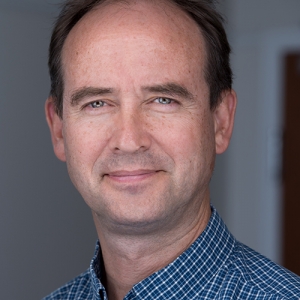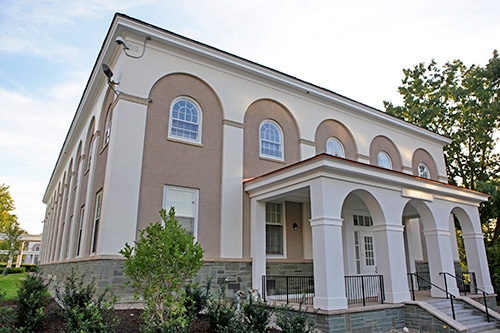Research interests
I have over 35 peer-reviewed or edited publications addressing a broad range of topics, including economic growth, political economy, the economics of culture, and social status. Recent publications have appeared in the Journal of Public Economics, World Development, Journal of Economic Growth, European Economic Review, and Journal of Economic Behavior and Organization. I served as Associate Editor for the Princeton Encyclopedia of the World Economy, 2009.
My primary line of research investigates the roles of values, beliefs, and preferences in economic, political, and social outcomes. My work in this area considers the roles of language and climate in cultural development, with a focus on the roles of individualism and patriarchy in economic and social outcomes. My work on happiness is primarily concerned with how happiness is influenced by social comparisons, with empirical and theoretical papers on social status, solidarity, and tunnel effects.
I have been fortunate to have worked with a variety of talented coauthors, including Claudia Williamson, Astghik Mavisakalyan, Anne Owen, Stephen Wu and Julio Videras and my Union College colleagues M. Fuat Sener and Stephen Schmidt.
I have an abiding interest in undergraduate research and have taught over 100 undergraduates how to do research as their senior thesis advisor. I have also been fortunate to have coauthored a number of papers with my students, including Allison Frederick ’10, Jack Mara ’10, Matthew Knauss ’11, Emily LaCroix ’11, Farangis Abdurazokzoda ’14, and Megan Reynolds ’16, and KR White, ’18.
Teaching interests
In addition to teaching several standard courses, including Introductory Economics and Microeconomic Theory, I teach a number of courses that are unique to Union College. The Economics of Sin applies economic analysis to topics like the market for transplantable organs, addiction, crime, polygamy, prostitution and the war on drugs. I also teach senior-level seminars on Economic Growth, Political Economy and the Economics of Culture.
Eco 225 – Economics of Sin: I recently developed a sophomore-level course in the economics of sin that address the economics of ethically complex markets. The course includes sections on the markets for transplantable organs, cigarettes and the economics of addiction, illegal drugs, and the market for sex. The development of this course was supported by a grant from the Rapaport Everyday Ethics Across the Curriculum Program at Union College.
Eco 380 – Economics of Growth and Development: In this senior level seminar, students read the current literature that attempts to explain the pattern of income levels and growth rates across time and countries.
Eco 381 – Economics of Culture: This seminar introduces students to the rapidly emerging literature on the economic of culture. Key topics include cultural transmission and persistence, the economics of religions, racism, culture work and saving, culture and gender, the taste for redistribution, trust, and culture and institutions. We spend a good deal of time talking about the process of economic research, and students undertake original research projects. The syllabus changes with each offering.
Eco 385 – Political Economy: This seminar addresses the interaction between the political and economic systems and applies the tools of economic analysis to political phenomena. The course involves a significant research component, and students undertake an original research project.
Eco 498-499 – Senior Thesis: Economics majors undertake a significant independent research project their senior year. I have advised around 100 senior thesis projects.
Publications
BOOK
Associate Editor, Princeton Encyclopedia of the World Economy, 2 volumes, edited with R. S. Rajan, K. A. Reinert, and A. Glass, Princeton University Press, February 2009.
JOURNAL ARTICLES
- “Gendered Language and Gendered Violence,” with Astghik Mavisakalyan and Clas Weber, Journal of Comparative Economics, forthcoming, August 12, 2024.
- “Do Religious Beliefs Matter for Economic Values?” with Zach Rodriguez, Journal of Institutional Economics, forthcoming, July, 2024. Click here for the Supplemental Appendix
- “Individualism and the Legal Status of Prostitution,” with Astghik Mavisakalyan, Journal of Comparative Economics, forthcoming, July 29, 2024.
- “Patriarchy, Development, and the Divergence of Women’s Empowerment,” Kyklos, June 2024, 1-27.
- “Social Disparities and Social Distancing during the Covid Pandemic” with Justin Esposito, Class of 2020, Eastern Economic Journal 49(2), April 2023, 129-141. (Lead article.)
- “Covid on Campus: An Empirical Analysis of Covid Infection Rates at US Colleges and Universities” with Stephen Schmidt and Sophia Zacher, Class of 2020, Southern Economic Journal 89(4), April 2023, 1034-55. (Lead article.)
Featured on the Academic Minute, WAMC, Northeast Public Radio. Listen to the podcast.
- “Inherited Patience and the Taste for Environmental Quality,” with Dolores Garrido and Carolina Missura, Class of 2021, Sustainability 2023, 15(5), 4038.
- “Individualism and Women’s Economic Rights,” (with Claudia Williamson), Journal of Economic Behavior and Organization 198 (June 2022), 579-597.
- “On the Origin of Religious Values: Does Italian Weather Affect Individualism in Bolivia?” Journal of Economics, Management and Religion, Oct. 2021.
- “Is Justice Blind? Evidence from Federal Corruption Convictions,” (with KR White, ’18), Public Choice, January, 2021.
- “Cultural Roots of Family Ties,” (with Claudia Williamson), Journal of Institutional Economics 16(6), December 2020, 785-808.
- “The Taste for Status in International Comparison,” (with Stephen Wu), Journal of Happiness Studies 21, August 2020, 2237–2256.
- “Refining the Salience Hypothesis: The Economic and Cultural Roots of Economic and Cultural Concerns over Immigration,” (with Sumit Deole), International Migration, June 2020, 1-17.
- “Preferences or Patriarchy: What Determines Whether Religious Women Work?” (with Jia Gao), Social Indicators Research 147(1), January 2020, 287-310.
- “Does Individualism Promote Gender Equality?” (with Claudia Williamson), World Development, November 2019.
- “Growth, Inequality and Tunnel Effects: A Formal Model,” Journal of Happiness Studies 20(4), April 2019, 1103-1119.
- “Political Economy of Growth with a Taste for Status,” Journal of Public Economics 168, December 2018, 35-46.
- "Open Borders for Business? Causes and Consequences of the Regulation of Foreign Entry," (with Claudia Williamson), Southern Economic Journal 85(2), Oct. 2018, 508-536.
- “Gendered Language and the Educational Gender Gap,” (with Megan Reynolds, ‘16) Economics Letters 168, July 2018, 46-48.
This paper was written with Megan Reynolds, class of 2016, and is an extension of her senior thesis project. It was featured in an editorial on gendered language in The Conversation, March 8, 2018, and a segment on NPR’s Academic Minute, July 18, 2018.
- “Social Animal House: The Economic and Academic Consequences of Fraternity Membership,” (with Jack Mara, ’10, and Stephen Schmidt) Contemporary Economic Policy 36(2), April 2018, 263-276.
Written with Union alumnus Jack Mara and colleague Steven Schmidt, this paper has been covered by number of national media outlets, including Bloomberg View, CNBC, Fox News, Mother Jones, Market Watch, National Affairs, and Real Clear Life, during late Sept. and early Oct. 2017. The article began as Jack Mara’s senior thesis project.
- “Immigration and the Rise of the Political Right in Europe,” with Sumit Deole, Center for Economic Studies ifo DICE Report - Journal for Institutional Comparisons 15, December 2017. (Invited)
- “Culture and the Regulation of Entry,” (with Claudia Williamson) Journal of Comparative Economics 44(4), Nov. 2016, 1055–1083.
- “Individual Responsibility and Economic Development: Evidence from Rainfall Data,” Kyklos 69(3), August 2016, 426-470.
My research linking rainfall patterns, individualism and economic development was featured on WAMC’s Academic Minute, Nov. 17, 2016.
It was also featured on the economics blog Marginal Revolution, Sept. 21, 2016.
- “Language, Culture and Institutions: Evidence from a New Linguistic Dataset,” (with Farangis Abdurazokzoda, ‘15) Journal of Comparative Economics 44(3), August 2016, 541-561.
- “How to Generate Good Profit Maximization Problems,” Journal of Economic Education 45(3), July 2014, 183-190.
- “Social Comparisons and Life Satisfaction across Racial and Ethnic Groups: The Effects of Status, Information and Solidarity,” (with Stephen Wu) Social Indicators Research 117, July 2014, 849-869.
My work with Stephen Wu (Hamilton College) on Social Status and Racial Solidarity was featured on WAMC’s Academic Minute, Dec. 2, 2015.
- “The Moral Consequences of Economic Growth: An Empirical Investigation,” (with Matthew Knauss) Journal of Socio-Economics 42, February 2013, 43-50.
- “National Policies, State Response and Community College Outcomes: Testing an Augmented Bennett Hypothesis,” (with Allison Frederick and Stephen Schmidt) Economics of Education Review 31, Dec. 2012, 809-817.
- “Private Patent Protection in the Theory of Schumpeterian Growth,” (with M. Fuat Sener) European Economic Review 56(7), Oct. 2012, 1446–1460.
- “Intellectual Property Rights, Institutional Quality and Economic Growth,” (with M. Fuat Sener) Journal of International Commerce, Economics and Policy 3(1), 2012, 1240005. (Invited Article)
- “Legal Origin and the Evolution of Environmental Quality,” (with Emily LaCroix, ‘11) Economics Bulletin 31(4), October 2011, 2968-2974.
- “Institutional Foundations of Inequality and Growth,” (with Mark Hopkins) Journal of Development Studies 47(7), July 2011, 977-997.
- “Institutional Flexibility and Economic Growth,” Journal of Comparative Economics 38 (3), September 2010, 306–320.
- “Do All Countries Follow the Same Growth Process?” (with Ann Owen and Julio Videras) Journal of Economic Growth 14(4), December 2009, 265-286. (Lead article)
- “Teaching the Economics of Sin,” Teaching Ethics 9(2), Special Issue: Everyday Ethics at Union College, Spring 2009, 51-58. (Invited article)
- “Scale Effects in Growth Theory: A Role for Institutions,” Journal of Economic Behavior and Organization 66(2), May 2008, 403-419.
- “Market Transaction Costs in Industrial Revolution and Demographic Transition,” Pacific Economic Review 12(1), Special Section on the Economics of Endogenous Specialization, February 2007, 79-99. (Invited article)
- "Explaining the Evidence on Inequality and Growth: Informality and Redistribution," The B.E. Journal of Macroeconomics 7(1), (Contributions), Article 7, 2007.
- “Growing Apart: The Division of Labor and the Breakdown of Informal Institutions,” Journal of Comparative Economics 34(1), March 2006, 75-91.
- “Trade, Growth and Uneven Development: A Critical Survey,” (with William Darity, Jr.) Cambridge Journal of Economics 29(1), January 2005, 141-170. (Invited article)
- “Toward a Unified Transaction Cost Theory of Economic Organization,” Journal of Institutional and Theoretical Economics 159(3), September 2003, 571-93.
- “Does the Market Recognize IT-Enabled Competitive Advantage?” (with Bruce Dehning and Theophanis Stratopoulos), Information and Management 40(7), August 2003, 705-716.
- “The Division of Labor and the Growth of Government,” Journal of Economic Dynamics and Control 27(7), May 2003, 1217-1235.
CONTRIBUTIONS TO EDITED VOLUMES
- “Development.” In: Rajan and Reinert (Eds.) Princeton Encyclopedia of the World Economy, 2 vols. Princeton: Princeton University Press, 2009.
- “Technological Progress, Economic Growth.” In: Darity, William A., Jr. (Ed.), International Encyclopedia of the Social Sciences, 2nd edition. 9 vols. Detroit: Macmillan Reference USA, 2008.
- “Development Economics.” In: Darity, William A., Jr. (Ed.), International Encyclopedia of the Social Sciences, 2nd edition. 9 vols. Detroit: Macmillan Reference USA, 2008.
Additional media
Areas of expertise
I joined the Economics Department at Union College in 2006, received tenure in 2011, and was appointed the Thomas Armstrong Professor of Economics in 2020. I have served as Economics Department Chair since September 2020. I received a BA in Mathematics from Davidson College in 1988 and a PhD in Economics from UNC-Chapel Hill in 1999. I previously held positions at Smith College, the University of New Hampshire, and SUNY Oswego, and served as a visiting professor at Martin Luther University, Germany, University of Perugia, Italy, and IESEG, France, and I spent two sabbaticals as a Scholar-in-Residence at New York University.
I work primarily on the economics of culture and teach classes on the economics of culture, economic development, and the economics of sin. For more on my research and teaching interests, please see below. I have led a number of economic consulting projects. Please contact me for details, references and examples of my work. My Curriculum Vitae is available here.
Academic credentials
B.S., Davidson College;
Ph.D., University of North Carolina at Chapel Hill

